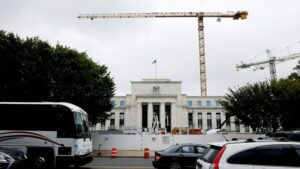In a recent development that has caught the attention of the cryptocurrency community, Coinbase, one of the leading cryptocurrency exchanges in the United States, claimed that the U.S. Securities and Exchange Commission (SEC) plans to withdraw a lawsuit against the firm. Brian Armstrong, the CEO of Coinbase, made this announcement through a message on the social networking platform X (formerly known as Twitter), expressing optimism over what he described as “an agreement” reached with SEC staff that could lead to the dismissal of the legal action without any fines or operational changes for the company.
The lawsuit, filed by the SEC in 2023, accused Coinbase of violating federal laws by offering investments that fell under SEC regulations without getting the necessary registrations. The lawsuit accused Coinbase of collectively violating multiple statutes by engaging in functions of an exchange, broker, and clearing agency without the required registrations for those services, thereby operating illegally in the U.S. Additionally, the SEC claimed that the exchange offered crypto assets that it categorized as “unregistered securities.” This legal action indicated that since at least 2019, Coinbase had unlawfully facilitated billions of dollars in transactions involving these crypto asset securities, depriving buyers and sellers of essential consumer protections.
The SEC’s lawsuit against Coinbase forms part of a broader initiative by the regulatory body to clamp down on cryptocurrency firms. It appears these enforcement actions have become increasingly prominent under former SEC Chair Gary Gensler’s leadership, as he notably spearheaded similar legal challenges against other prominent crypto entities, including Binance. This rigorous approach towards regulation ignited a significant conversation among crypto enthusiasts and investors, particularly in light of the various regulations being set forth in the evolving landscape of U.S. cryptocurrency law.
In his post on X, Armstrong described the potential dismissal of the lawsuit as “hugely vindicating,” an expression that indicates both relief and hope for the future of the crypto ecosystem. He also took the opportunity to thank political figures such as former President Donald Trump, who, during his 2024 campaign, pledged to reverse some of the stringent regulations imposed on the cryptocurrency industry. Armstrong specifically highlighted the impactful role of “crypto voters” in electing pro-crypto candidates, asserting that this demographic showed up in “millions” to secure their rights amid a rapidly changing regulatory backdrop.
Armstrong’s reflections on recent political dynamics underscored a renewed unity among crypto advocates, who now recognize their collective voice in shaping regulatory outcomes. Furthermore, he seized this moment to criticize former SEC Chair Gensler, who had been at the center of enforcing rigorous cryptocurrency regulations and had filed cases against other exchanges, thus completing the narrative of a larger power struggle between crypto firms and regulators.
Paul Grewal, Coinbase’s Chief Legal Officer, echoed Armstrong’s sentiments, stating that the firm will not stop advocating for clear regulatory frameworks essential for fostering a healthy and competitive cryptocurrency industry. He affirmed that Coinbase and its representatives are committed to engaging with Congress and SEC staff to establish rules that truly enable the cryptocurrency sector to flourish in the U.S. market.
Overall, the interactions and statements by Coinbase’s top executives signal a pivotal moment for the cryptocurrency industry, reflecting both their hope for regulatory relief and their commitment to responsible practices. The developments surrounding the SEC lawsuit against Coinbase illustrate not only the complex relationship between emerging industries and regulatory agencies but also highlight the growing influence of political discourse in shaping the future of digital finance and technology in the United States. This case may serve as a precedent for how cryptocurrency regulations evolve going forward, depending on the outcomes of ongoing advocacy efforts and potential political shifts in the landscape.











